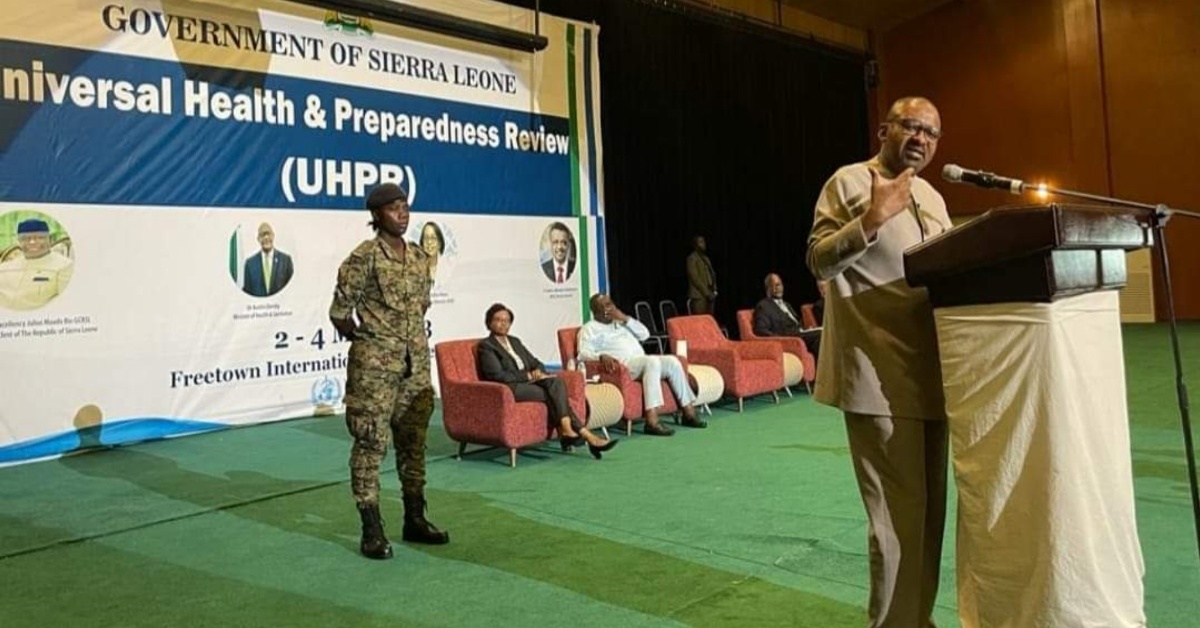Sierra Leone has launched a national Universal Health Preparedness Review (UHPR), becoming the second African country and the fifth globally to undertake the review.
The UHPR is a state-led mechanism designed to bolster health emergency preparedness and response, while simultaneously building health system capacity to deliver quality universal healthcare.
Dr. Mohamed Juldeh Jalloh, Vice-President of Sierra Leone, launched the review process, aimed at identifying gaps and reinforcing measures against health shocks.
The UHPR was initially proposed by the Central African Republic and Benin in response to the challenges foregrounded by COVID-19, and the State-led mechanism was launched by World Health Organization (WHO) Director-General Dr. Tedros Adhanom Ghebreyesus in October 2020.
Under the UHPR, countries agree to voluntary, regular, and transparent peer reviews of their national health emergency preparedness capacities.
Sierra Leone’s Minister of Health, Dr Austin H. Demby, said, “You need to prepare for a health emergency, and you must have a resilient health system. This is where we want to go, and we want WHO to support us to get there faster, identifying and documenting the lessons learned.”
The UHPR enhances how countries protect themselves, protect their neighbors, and protect the world.
Dr. Mike Ryan, Executive Director of the WHO Health Emergencies Programme, said, “There is no global health security without national development, and countries that respond to outbreaks are not doing it only for themselves, but also for the world.”
Sierra Leone has made notable recent progress towards improving health indicators, particularly in reducing maternal and under-5 mortality rates. The UHPR harnesses an all-of-government and whole-of-society approach, engaging ministries from across governments, as well as development partners and civil society, to advance the process. The review examines best practices, gaps and challenges, along with priorities in three areas of the health response: governance, systems and financing for health emergencies, and universal health coverage.

 Post a comment
Post a comment









Comment(s)
Disclaimer: Comments expressed here do not reflect the opinions of Sierraloaded or any employee thereof.
Be the first to comment